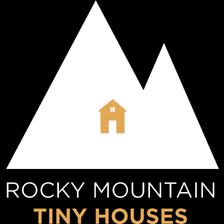I get asked all the time if we are “RVIA Certified” The short answer is “NO” What does this even mean?
The Recreational Vehicle Industry Association (RVIA) is an organization that exists to promote the industry of recreational vehicles as well as adopt and enforce safety standards for participating RV manufacturers.
Per their website,
An RV is a vehicle designed as temporary living quarters for recreational, camping, travel or seasonal use. RVs may be motorized (motorhomes) or towable (travel trailers, folding camping trailers and truck campers).
In a nutshell, I build high quality, one-of-a kind tiny houses on trailers that are intended for full time permanent living. I do not build structures that are intended for temporary living quarters for recreational, camping, travel, or seasonal use. Furthermore, I do not pretend to build tiny houses for temporary use for the sake of RVIA certification in order for customers to procure financing via an RV loan.
At one time, I did look into and pursue RVIA certification. RVIA sent me a letter making their case very clear regarding their thoughts on this matter. I not only respect and conform to these thoughts, but am proud to take a stand and make my thoughts very clear that I am in the business of designing and building high quality tiny houses, not RV’s For those curious as to RVIA’s stance on tiny houses, I am including an excerpt from the letter they sent me.
What is RVIA and Who Does it Represent?
RVIA is the national trade association that represents the manufacturers of recreation vehicles (“RVs”), which include motorhomes, travel trailers, fifth wheel trailers and truck campers, along with park model RVs (also known as PMRVs). RVIA also represents component part suppliers and other businesses that provide materials and services to the RV/PMRV industry. RVs are defined as: vehicular-type units that are primarily designed as temporary living quarters for recreational, camping, or seasonal use; have their own motive power or are mounted on or towed by another vehicle; are regulated by the United States Department of Transportation’s National Highway Traffic Safety Administration (NHTSA) as a vehicle or vehicle equipment; do not require a special highway use permit for operation on the highways; can be easily transported and set up on a daily basis by an individual; and are certified by their manufacturer as complying with the NFPA 1192 Standard on Recreation Vehicles.
PMRVs are defined as: trailer type units that are primarily designed as temporary living quarters for recreational, camping, or seasonal use; are built on a single chassis mounted on wheels; have a gross trailer area not exceeding 400 square feet in the setup mode (or if less than 320 square feet in the setup mode would require a special highway movement permit); and are certified by their manufacturer as complying with ANSI A119.5 Park Model RV Standard.
The most important fact to take away from these basic definitions is that RVs and PMRVs are purpose-built as temporary accommodations for camping and seasonal use. They are not houses; they are not manufactured housing; and they are neither designed for nor intended to serve as permanent habitations.
Can Tiny Homes Be RVs?
Tiny homes may qualify as RVs, but to do so they must be built as vehicles in compliance with NHTSA regulations (see the Federal Motor Vehicle Safety Standards – also referred to as the FMVSS – which can be found at Title 49 of the Code of Federal Regulations). They must also comply with the NFPA 1192 RV Standard. Note that these products cannot require a special movement permit to be transported on the highways. RVIA maintains an inspection program for its member RV manufacturers. Every eight weeks or so, staff inspectors make unannounced factory visits to ensure that manufacturers are fulfilling their obligation to comply with the provisions of the NFPA 1192 standard.
Can Tiny Homes Be PMRVs?
Tiny homes may qualify as PMRVs, but to do so they must not exceed 400 square feet in the setup mode or, if less than 320 square feet in the setup mode, must require a special movement permit to be transported on the highway. They must also comply with the ANSI A119.5 PMRV Standard. RVIA maintains an inspection program for its member PMRV manufacturers. Every eight weeks or so, staff inspectors make unannounced factory visits to ensure that manufacturers are fulfilling their obligation to comply with the provisions of the ANSI A119.5 standard.
What If Tiny Homes Are Intended For Permanent Residence?
If a manufacturer of tiny homes intends for its units to serve as a permanent residence — and markets its tiny home products to consumers for that purpose — then these units cannot be considered RVs or PMRVs. Instead, such tiny homes are required by law to comply with local building codes, state modular housing codes, and/or the United States Department of Housing and Urban Development (HUD) regulations for manufactured housing. RVIA does not represent manufactured housing products.
What Are the Potential Consequences for “Gaming the Rules”?
A manufacturer may be tempted to “play games” with the rules and regulations by designing and building tiny homes in compliance with RV or PMRV standards, instead of housing regulations, even though they intend the units to be marketed and sold as permanent housing. Don’t do it. Such deception will result in local zoning issues for your customers and may even lead to an enforcement investigation by state or federal housing regulators. RVIA will not support a member manufacturer faced with any of these government actions if it determines that the tiny homes at issue were built and sold for permanent residence.
Now, all things considered, the tiny houses we build are designed to comply with the safety standards set forth by ANSI 119.5 as well as NFPA 1192. We take safety very seriously.
Other certification options we offer are through NOAH or the State of Colorado Tiny Home Program (if the house is to be parked in Colorado).
